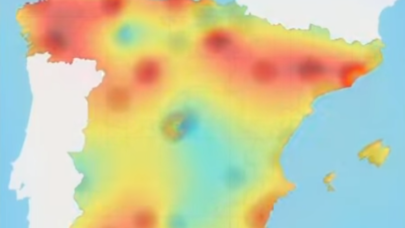
Fujitsu to Supply CESGA with Quantum Computer
January 7, 2023
The Galician Supercomputing Center (CESGA) – located in northwestern Spain – has announced that it will acquire a quantum computer, valued at €14 million Read more…

Intel Invests €33B in Europe, Announces ‘Silicon Junction’ Megasite
March 16, 2022
Intel has announced that it is making an “initial” €33 billion (~$36 billion) investment across the semiconductor value chain in Europe. The investment — which spans R&D, manufacturing and packaging — comes at a time when sovereignty is, more than ever, a headline priority for the continent. What was announced? A “Silicon Junction” in Germany with two new fabs... Read more…

Amid a Canceled Tender, More Details of MareNostrum 5 (Finally) Emerge
June 28, 2021
Last October, the executive director of the EuroHPC JU – Anders Dam Jensen – said that with respect to MareNostrum 5 (the final pre-exascale EuroHPC system), “the tendering process was in its very final phase” and that “there would be announcements on that in the coming weeks.” Eight months later, the system’s status is still set to “it’s complicated.” Now, thanks to a brief presentation from... Read more…

EuroHPC Systems Leonardo, Lumi Share More Details as Finish Lines Near
May 20, 2021
About two years ago, the EuroHPC Joint Undertaking (JU) selected eight host countries for its first eight systems. Now, those trees are bearing fruit – Sloven Read more…

Supercomputing Study Ties Barcelona’s Excess Pollution to Diesel Exhaust
January 29, 2021
Nitrogen dioxide (NO2) pollution, which largely stems from fossil fuel combustion, can have serious impacts on human health, including decreased lung function, Read more…

Spanish Researchers Introduce HPC-Ready COVID-19 Spread Simulator
April 7, 2020
With governments in a mad scramble to identify the policies most likely to curb the spread of the pandemic without unnecessarily crippling the global economy, r Read more…

- Click Here for More Headlines

Whitepaper
Transforming Industrial and Automotive Manufacturing
In this era, expansion in digital infrastructure capacity is inevitable. Parallel to this, climate change consciousness is also rising, making sustainability a mandatory part of the organization’s functioning. As computing workloads such as AI and HPC continue to surge, so does the energy consumption, posing environmental woes. IT departments within organizations have a crucial role in combating this challenge. They can significantly drive sustainable practices by influencing newer technologies and process adoption that aid in mitigating the effects of climate change.
While buying more sustainable IT solutions is an option, partnering with IT solutions providers, such and Lenovo and Intel, who are committed to sustainability and aiding customers in executing sustainability strategies is likely to be more impactful.
Learn how Lenovo and Intel, through their partnership, are strongly positioned to address this need with their innovations driving energy efficiency and environmental stewardship.
Download Now
Sponsored by Lenovo
Whitepaper
How Direct Liquid Cooling Improves Data Center Energy Efficiency
Data centers are experiencing increasing power consumption, space constraints and cooling demands due to the unprecedented computing power required by today’s chips and servers. HVAC cooling systems consume approximately 40% of a data center’s electricity. These systems traditionally use air conditioning, air handling and fans to cool the data center facility and IT equipment, ultimately resulting in high energy consumption and high carbon emissions. Data centers are moving to direct liquid cooled (DLC) systems to improve cooling efficiency thus lowering their PUE, operating expenses (OPEX) and carbon footprint.
This paper describes how CoolIT Systems (CoolIT) meets the need for improved energy efficiency in data centers and includes case studies that show how CoolIT’s DLC solutions improve energy efficiency, increase rack density, lower OPEX, and enable sustainability programs. CoolIT is the global market and innovation leader in scalable DLC solutions for the world’s most demanding computing environments. CoolIT’s end-to-end solutions meet the rising demand in cooling and the rising demand for energy efficiency.
Download Now
Sponsored by CoolIT
Advanced Scale Career Development & Workforce Enhancement Center
Featured Advanced Scale Jobs:
HPCwire Resource Library
HPCwire Product Showcase
© 2024 HPCwire. All Rights Reserved. A Tabor Communications Publication
HPCwire is a registered trademark of Tabor Communications, Inc. Use of this site is governed by our Terms of Use and Privacy Policy.
Reproduction in whole or in part in any form or medium without express written permission of Tabor Communications, Inc. is prohibited.
























